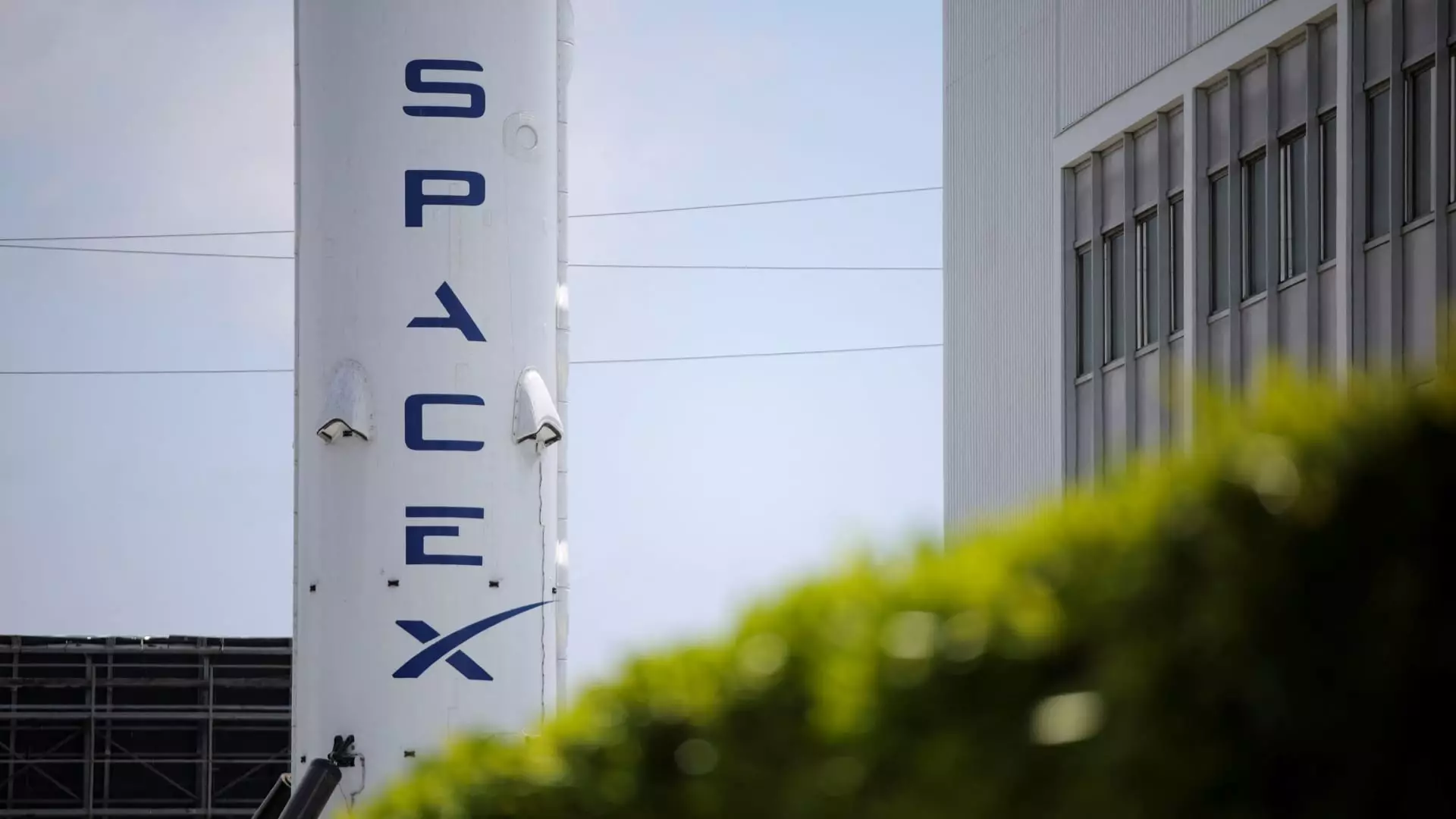In a political climate teetering on the edge of chaos, the spotlight has turned to a most unlikely battleground – the contracts of SpaceX, Elon Musk’s aerospace venture. The White House has launched an alarming review of Musk’s multi-billion dollar deals with the Defense Department and NASA, a move reportedly fueled by personal vendettas and infighting rather than sound governance. The implications of this situation extend beyond Musk and SpaceX; they threaten the very fabric of how the U.S. governs its scientific and defense partnerships.
This review, described as a form of political retribution, originates from a public quarrel between President Donald Trump and Musk, who recently had a fallout regarding policy and personal opinions. For a president to leverage government contracts as a weapon in a personal dispute is not only unethical — it is dangerous. Government contracts are not simply transactional agreements; they are vital to our national security and scientific progress. The potential to let political egos steer decisions represents an existential threat to the integrity of our public institutions.
The New Cold War: Fear of Cancellation
The Pentagon’s decision to reevaluate SpaceX’s role in critical national projects raises eyebrows about the administration’s priorities. Amidst the chaos of presidential whims, defense officials are reportedly considering ways to sideline SpaceX in future missile defense contracts, a decision that could jeopardize the ambitious goal of creating a robust missile defense system — affectionately known as the “Golden Dome.” This situation serves to remind us how intricately tied our development in aerospace technology is with the whims of opinionated politicians.
Further complicating matters is the fact that SpaceX holds approximately $22 billion in federal contracts — a number that represents more than just dollars and cents; it symbolizes the trust placed by the government in a company crucial to various national security initiatives. If the administration is willing to compromise on these contracts due to personal disagreements, how can we trust that other companies, especially those smaller and less politically connected, won’t face the same scrutiny?
The Irony of Subjective Scrutiny
As Scott Amey of the Project on Government Oversight points out, it is darkly ironic that Musk’s contracts may undergo the same scrutiny he and his advisors have historically applied to countless others. In democracies, the checks and balances on power exist to ensure that personal grievances don’t compromise the common good.A government intent on conducting business through the lens of anger and rivalry risks floating into dangerous waters where policy is dictated by the whims of powerful individuals rather than based on principles of sound governance and public well-being.
Musk’s ventures have become indispensable to U.S. aerospace capabilities. SpaceX’s ability to transport astronauts and supply the International Space Station represents a significant achievement both scientifically and commercially. The idea that his contributions to the nation’s aerospace sphere might be cast aside due to a misjudged spat with the president sends shockwaves through the industry, sowing seeds of doubt about the stability and integrity of future collaborations between government entities and private industries.
The Echoes of a Torn Relationship
Musk’s recent attempts at reconciliation with Trump do little to mask the underlying tension between them. His erratic statements — calling for impeachment one day and trying to mend fences the next — reveal the complexities of their relationship and highlight how precariously our national interests hang in the balance of these titans’ personalities. Musk’s influence, while seeming to elevate the United States to new heights in space exploration and defense, simultaneously renders him vulnerable to the caprices of presidential temper.
At its core, this entire debacle underscores a troubling trend in contemporary governance: the blending of personal interests with public policy decisions. In this politically charged environment, policies that should be made based on national interest risk being tainted by personal revenge or fragile egos.
While democracy thrives on accountability and scrutiny, the current trajectory may well lead to an uncharted territory where political retribution breeds mistrust, fear, and dysfunction in critical sectors of national security. As we look to the stars, we must ensure our governing ethos does not descend into the darkness of pettiness.

Leave a Reply